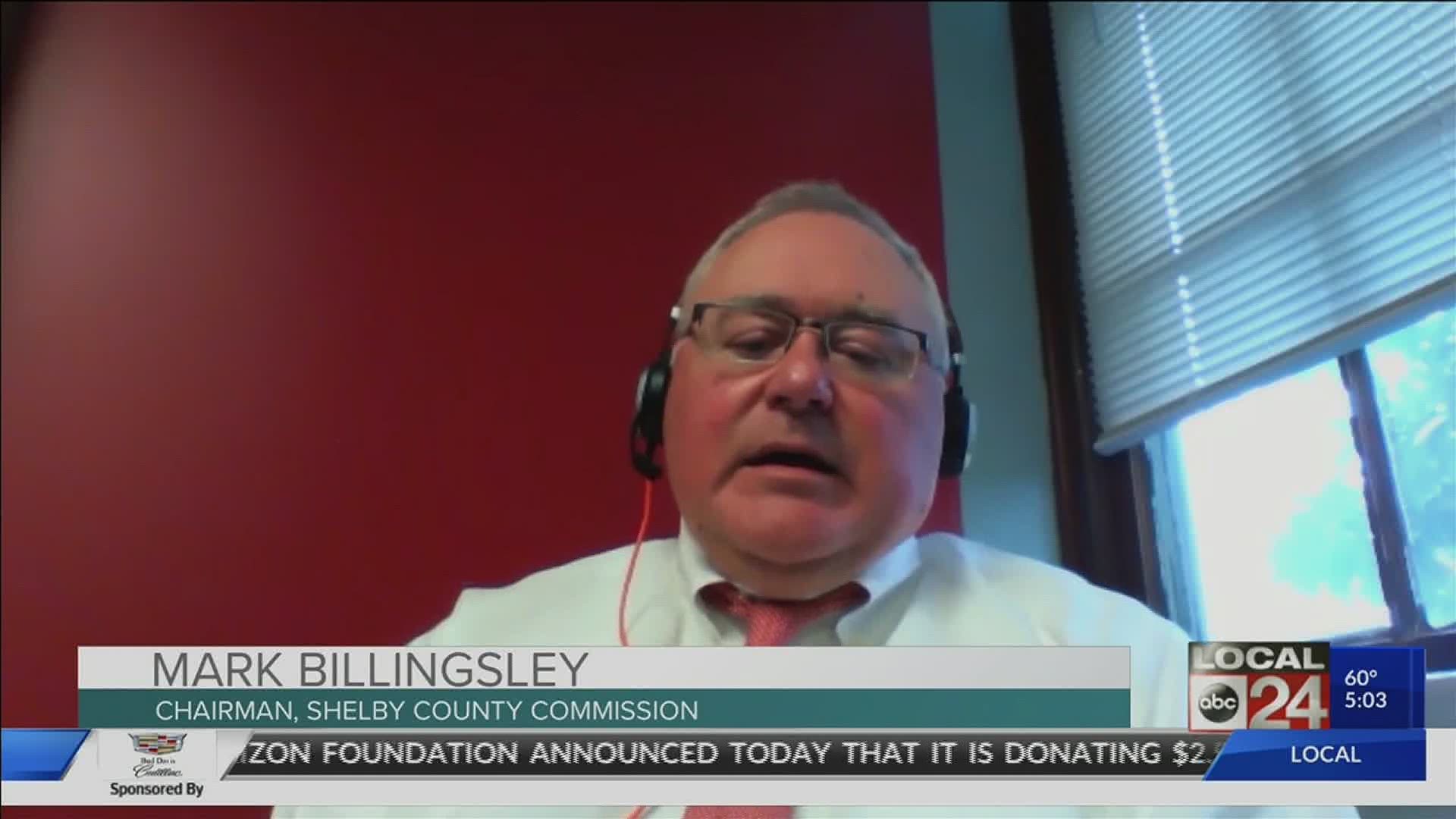MEMPHIS, Tenn. — Another abnormal day. Abnormal in a world where pandemic problems are normal.
We’re not just talking about Coronavirus. We are talking about how, one way or another, everyone is being affected.
“A lot of people are hoping we will see a peak in this, and the number cases will fall,” says Shelby County Commission Chairman Mark Billingsley. “We won’t be able to see a peak if people continue to operate like it’s business as usual. It’s not”
The City of Memphis has closed city parks. Shelby Farms, operated by the county, remains open. It was jammed packed this past weekend as people ignored social distancing.
“We’ve reached out to Shelby Farms officials to ask them to put in the best controls they can. I don’t think the county wants to shut down Shelby Farms, but we are going to have to see more compliance.”
With stay-in-place quarantines, many businesses have closed, and many people are out of work.
Tax money doesn’t flow into Shelby County anymore. It trickles.
Mayor Lee Harris will ask all departments to reduce their operations budgets by two-and-a-half percent.
“Emergency services would not be affected by this,” Billingsley said. “Neither the health department nor the Sheriff’s operations,” he said.
Billingsley supports the plan. It will be presented to other members of the Shelby County Commission on Wednesday.
--------------------------
Coronavirus in Context:
The majority of people who have coronavirus will get better without any long-term effects, according to an Oregon doctor. About 80% of cases tend to be mild. In these cases, symptoms diminish over five to seven days, although people are still capable of transmitting the disease. But there are many people with a higher risk of having a more severe disease if they are diagnosed with coronavirus, including those with heart disease, diabetes, asthma and other vascular disease problems.
Also, most children who get it have mild symptoms.
WHO officials said March 9 that of about 80,000 people who have been sickened by COVID-19 in China, more than 70% have recovered and been discharged from hospitals.
Patients are typically released when they test negative twice for the virus within 24 hours, meaning they’re no longer carrying the virus, although some countries may be using a slightly different definition, that may include when people have no more respiratory symptoms or a clear CT scan.
The World Health Organization said it could take considerably longer for people to be “recovered,” depending on the severity of disease.
Dr. Mike Ryan, the World Health Organization's emergencies chief, said it can take up to six weeks for people to fully recover from COVID-19 infections, which could include pneumonia and other respiratory problems in serious cases. He said the numbers of reported patients have not always been systematically provided to World Health Organization although the U.N. health agency is asking every country with cases for further information.
To put the coronavirus numbers in context, millions of Americans get the flu every single year and there are thousands of flu deaths annually.
Since October 2019, the CDC estimates around 32 million Americans have gotten the flu. That’s one in every 10 Americans.

